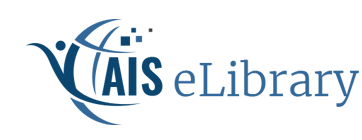2/2025
The latest issue is out now
New The articles of the latest issue are already available for download. In this issue, readers will find important contributions on e-logistics, GDPR, IT project success, IT strategic alignement, and cloud-based project management.
01/2025
IJISPM's acceptance rate
The journal's acceptance rate for 2024 was 5%. Unfortunately, many submitted papers are desk rejected. So, we kindly ask the author/s to carefully review their articles before submission and strictly follow the journal's guidelines.
9/2024
A new template is available for download
A new template is available for download. After volume 12, all the articles will be based on this template.

- Beyond the line and hook: Identifying primary e-logistics technology adoption factors in the fishing industry
Bradley Bucky Khumalo, Shaun Pather- In the current era, e-logistics technologies have become commonplace in businesses to enhance supply chain and associated data analytics efficiencies. However, while contributing significantly to the GDPs in many countries, the fishing industry has been slow at adopting new technologies. Many slow adopters in this industry continue to use outdated data collection methods, thereby resulting in less-than-optimal data-driven decision-making. While prior research has examined the role of emerging technologies in the industry, there has been limited research to date to understand adoption issues. Our study therefore investigates factors that influence the adoption of e-logistics technologies in the fishing industry, using the Western Cape province in South Africa as the study site. The research investigated these factors using the Security-Technology-Organisation-Environment-Diffusion-of-Innovation framework. Qualitative data was collected via semi-structured interviews. The findings provide a rich insight into several adoption factors that demonstrate an interplay of technological innovations, organisational dynamics, and the environment within the industry. The findings were synthesized into an e-logistics technology adoption model. This paper enriches the existing literature on technology adoption, contributing insights for fishing industry stakeholders, and lays the foundation for informed decision-making in the realm of e-logistics integration.
- Factors related to GDPR compliance promises in privacy policies: A machine learning and NLP approach
Abdel-Jaouad Aberkane, Seppe vanden Broucke, Geert Poels- This paper employs Machine Learning (ML) and Natural Language Processing (NLP) techniques to examine the relationship between organizational factors, such as company size and headquarters location, of data processing entities and their GDPR compliance promises as disclosed in privacy policies. Our methodology comprises three main stages, each representing a key contribution. Firstly, we developed five NLP-based classification models with precision scores of at least 0.908 to assess different GDPR compliance promises in privacy policies. Secondly, we have collected a data set of 8,614 organizations in the European Union containing organizational information and the GDPR compliance promises derived from the organization’s privacy policy. Lastly, we have analyzed the organizational factors correlating to these GDPR compliance promises. The findings reveal, among other things, that small or medium-sized enterprises negatively correlate with the disclosure of two GDPR privacy policy core requirements. Moreover, as a headquarters location, Denmark performs best regarding positively correlating with disclosing GDPR privacy policy core requirements, whereas Spain, Italy, and Slovenia negatively correlate with multiple requirements. This study contributes to the novel field of GDPR compliance, offering valuable insights for policymakers and practitioners to enhance data protection practices and mitigate non-compliance risks.
- Perceptual mapping of the association between IT project success and factors promoting strategic alignment
Marcus Vinícius Medeiros de Araújo, Jairo Simião Dornelas, Rodrigo Barbosa da Silva- The present research aimed at investigating the existence of associations between the factors promoting the strategic alignment of Information Technology (IT) and the success of IT projects. IT projects carried out in a public company in the Brazilian electricity sector from 2015 to 2018 were taken as the locus of the study. The research had a descriptive nature, used the quantitative method and a survey with 144 respondents from the company's business and IT areas. The key findings indicate that the success of IT projects depends on both the social dynamics between IT and business teams, as well as the intellectual/strategic alignment of IT plans, resources and priorities with the overall business objectives. This research contributes by providing insights into the aspects of strategic alignment and their influence on project success. It offers practical guidance for organizations in managing IT projects and aligning them with business objectives. While the study focuses on a specific Brazilian public company, further research is needed to validate the findings across different industries and contexts. Overall, this research enhances our understanding of the relationship between strategic alignment, IT project success, and provides a foundation for future studies in this area.
- A framework of critical success factors of cloud-based project management software adoption
L. I. Assalaarachchi, M. P. P. Liyanage, C. Hewagamage- Project Management (PM) software is an enabler of project success and is now being offered as a cloud-based software with the advancement of cloud computing. This research was conducted to explore the critical success factors affecting the adoption of cloud-based PM software. Semi-structured interviews were carried out with Information Technology (IT) professionals following the qualitative approach. Through thematic analysis, four themes were identified as areas considered when adopting cloud-based PM software: technological, organizational, environmental, and vendor-specific factors. Relative advantage, ease of use, compatibility, and reliability were categorized as the technological factors. Organization size, the technological readiness of the organization, employee willingness, top management support, and change management process were identified under organizational factors. Competitors' adoption, industry trends, and dedicated internet connectivity were identified under environmental factors. Additionally, features such as maintenance and service support from the vendor, popularity of the brand name, and availability of free trials emerged as vendor-specific factors.
Current issue








